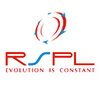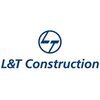Production Graduate Engineer Trainee
20+ Production Graduate Engineer Trainee Interview Questions and Answers for Freshers

Asked in Alembic Pharmaceuticals

Q. What are the principles of heat transfer across all phases?
Heat transfer works on the principle of transferring thermal energy from a higher temperature object to a lower temperature object.
Heat transfer occurs through conduction, convection, and radiation.
Conduction is the transfer of heat through a material without any movement of the material itself.
Example: Touching a hot pan and feeling the heat transfer through the metal.
Convection is the transfer of heat through the movement of fluids (liquids or gases).
Example: Boiling water ...read more

Asked in Jindal Saw

Q. What are the key features of the iron-carbon diagram, including its important phases and corresponding temperatures?
The iron-carbon diagram illustrates the phases and transformations of iron and carbon alloys at varying temperatures.
The diagram includes key phases: ferrite (α), cementite (Fe3C), austenite (γ), and liquid iron.
Ferrite is stable up to 912°C and has a body-centered cubic (BCC) structure.
Austenite forms between 727°C and 1394°C, characterized by a face-centered cubic (FCC) structure.
Cementite is stable at all temperatures and has a complex orthorhombic structure.
The eutectoid ...read more

Asked in Jindal Saw

Q. What is the structure of a blast furnace, and what are the important zones and the temperatures maintained within them?
A blast furnace is a large structure used for smelting iron, featuring distinct zones with varying temperatures for efficient metal production.
The blast furnace consists of several zones: the top, the bosh, the hearth, and the tuyere zone.
The upper zone (charging zone) operates at around 200-400°C, where raw materials like iron ore, coke, and limestone are added.
The bosh zone, located below the charging zone, reaches temperatures of 800-1200°C, where the coke burns to produce...read more

Asked in Deepak Chem Tech

Q. What methods are used to determine the number of plates in a distillation column?
Number of plates in a distillation column can be found using methods like McCabe-Thiele method, Fenske equation, and Ponchon-Savarit method.
McCabe-Thiele method involves constructing equilibrium and operating lines to determine number of plates.
Fenske equation is used for binary distillation to calculate minimum number of plates required.
Ponchon-Savarit method is graphical method to determine number of plates in a distillation column.

Asked in Megha Engineering & Infrastructures

Q. What types of concrete are used in construction?
Different types of concrete used in construction include ready-mix concrete, precast concrete, high-strength concrete, and lightweight concrete.
Ready-mix concrete is a mixture of cement, water, and aggregates that is delivered in a truck and poured on site.
Precast concrete is made in a controlled environment and then transported to the construction site for installation.
High-strength concrete is designed to withstand heavy loads and is often used in structures like bridges an...read more

Asked in Jindal Saw

Q. What is the process of centrifugal casting and how is alloy addition performed?
Centrifugal casting is a process that uses centrifugal force to produce cylindrical metal parts with uniform density and strength.
Centrifugal casting involves pouring molten metal into a rotating mold.
The rotation creates a force that distributes the metal evenly against the mold walls.
This process is ideal for producing cylindrical shapes like pipes and tubes.
Alloy addition can be performed by mixing different metals before pouring or by adding alloying elements directly int...read more

Asked in Alembic Pharmaceuticals

Q. What are the modes of Heat Transfer (HT)?
Modes of HT refer to the different ways in which heat treatment can be carried out on materials.
Annealing
Normalizing
Quenching
Tempering

Asked in Jindal Saw

Q. What is the importance of stress-strain curve, what are the mechanical testings done.
The stress-strain curve is crucial for understanding material behavior under load, guiding design and safety in engineering applications.
Illustrates material properties: The curve shows how materials deform under stress, indicating elastic and plastic behavior.
Determines yield strength: The point where the curve deviates from linearity indicates the yield strength, essential for design limits.
Identifies ultimate tensile strength: The maximum stress point on the curve helps in...read more
Share interview questions and help millions of jobseekers 🌟


Asked in RSPL Group

Q. WHAT IS BERNOULLI THEOREM? WHAT IS PASCAL LAW? WHAT IS PERT AND CPM ?
Bernoulli's theorem relates the pressure, velocity, and elevation of a fluid in a steady flow. Pascal's law states that a change in pressure applied to an enclosed fluid is transmitted undiminished to all portions of the fluid.
Bernoulli's theorem states that in a steady flow of an incompressible, frictionless fluid, the sum of pressure energy, kinetic energy, and potential energy per unit volume remains constant.
Pascal's law states that a change in pressure applied to an encl...read more

Asked in Megha Engineering & Infrastructures

Q. Different types of steel used in construction
Different types of steel used in construction include carbon steel, alloy steel, stainless steel, and tool steel.
Carbon steel is the most common type used in construction due to its strength and affordability.
Alloy steel contains additional elements such as manganese, silicon, and copper to enhance its properties.
Stainless steel is corrosion-resistant and often used in environments where rust is a concern.
Tool steel is used for making tools and equipment due to its hardness a...read more

Asked in Maruti Suzuki

Q. Explain the basic functioning of IOT based on the project from your resume.
IoT connects devices to the internet, enabling data exchange and automation for improved efficiency and decision-making.
IoT devices collect data from their environment, e.g., smart thermostats monitor temperature.
Data is transmitted to the cloud for analysis, allowing for real-time insights.
Automated actions can be triggered based on data, such as turning on lights when someone enters a room.
IoT enhances efficiency in industries, e.g., predictive maintenance in manufacturing ...read more

Asked in Maruti Suzuki

Q. How can the ADAS system in cars be improved?
To improve ADAS systems in cars, focus on enhancing sensor technology, increasing accuracy of algorithms, and integrating with V2X communication.
Enhance sensor technology to improve detection capabilities
Increase accuracy of algorithms for better decision-making
Integrate ADAS systems with V2X communication for real-time data exchange
Regular software updates to ensure system stays up-to-date with latest advancements

Asked in Hyundai Motor India Limited

Q. What are the basics of your domain?
Production engineering focuses on optimizing manufacturing processes, ensuring efficiency, quality, and cost-effectiveness.
Understanding manufacturing processes: Familiarity with processes like machining, welding, and assembly.
Quality control: Implementing techniques like Six Sigma to minimize defects and ensure product quality.
Lean manufacturing: Applying principles to reduce waste and improve efficiency, such as the 5S methodology.
Supply chain management: Coordinating mater...read more

Asked in Collins Aerospace

Q. Tell me about your experience with simulation and CFD analysis.
I have experience in using simulation software and conducting CFD analysis for various engineering projects.
Utilized software like ANSYS Fluent and SolidWorks Flow Simulation for CFD analysis
Performed simulations to optimize designs and improve performance
Used simulation results to validate theoretical calculations and make design decisions
Experience in heat transfer analysis and fluid flow simulations

Asked in Megha Engineering & Infrastructures

Q. Types of soils used in construction
Types of soils used in construction include clay, sand, silt, and gravel.
Clay: used for lining ponds and as a base for roads
Sand: used for making concrete and mortar
Silt: used for filling embankments and as a base for roads
Gravel: used for drainage and as a base for roads

Asked in Transpek-silox Industry

Q. What are absorption and extraction?
Absorption and extraction are separation processes used in chemical engineering to separate components from a mixture.
Absorption involves the transfer of a solute from a gas phase to a liquid phase.
Extraction involves the transfer of a solute from a liquid phase to another liquid phase.
Absorption is used in processes like gas scrubbing to remove pollutants from air.
Extraction is used in processes like solvent extraction to separate metals from ores.
Asked in SNF Flopam India

Q. Mass balance of the reaction.
Mass balance of the reaction refers to the conservation of mass during a chemical reaction.
Mass balance is important to ensure that the reaction is efficient and complete.
It involves keeping track of the mass of reactants and products before and after the reaction.
The law of conservation of mass states that mass cannot be created or destroyed, only transformed.
An example of a mass balance equation is: 2H2 + O2 -> 2H2O, where the mass of reactants (4g + 32g = 36g) is equal to ...read more

Asked in Transpek-silox Industry

Q. What are yield and selectivity?
Yield is the amount of desired product obtained in a chemical reaction, while selectivity is the ratio of desired product to all products formed.
Yield is calculated as (amount of desired product obtained / theoretical maximum amount of product) * 100%
Selectivity is calculated as (moles of desired product formed / total moles of all products formed) * 100%
High yield indicates efficiency of the reaction, while high selectivity indicates specificity of the reaction
For example, i...read more

Asked in Epiroc

Q. What is the difference between a pump and a turbine?
Pump is used to move fluid from one place to another, while turbine converts fluid energy into mechanical energy.
Pump increases the pressure of a fluid and moves it from one location to another.
Turbine converts the kinetic energy of a moving fluid into mechanical energy.
Pumps are commonly used in industries for fluid transfer, while turbines are used in power generation.
Examples of pumps include centrifugal pumps and diaphragm pumps, while examples of turbines include steam t...read more

Asked in Megha Engineering & Infrastructures

Q. Tyeps of Fondations in construction
Types of foundations in construction include shallow foundations, deep foundations, and specialized foundations.
Shallow foundations: spread footings, mat foundations
Deep foundations: piles, drilled shafts
Specialized foundations: caissons, piers

Asked in Transpek-silox Industry

Q. Explain process safety and PSSR.
Process safety involves identifying, evaluating, and controlling hazards to prevent accidents in industrial processes. PSSR stands for Pre-Startup Safety Review.
Process safety focuses on preventing accidents by identifying and controlling hazards in industrial processes.
PSSR is a thorough review conducted before starting up a new or modified process to ensure all safety measures are in place.
Process safety includes elements such as process hazard analysis, management of chang...read more

Asked in SRF

Q. What is distillation?
Distillation is a process used to separate components of a liquid mixture based on their different boiling points.
Distillation involves heating a liquid mixture to create vapor, then cooling the vapor to condense it back into liquid form.
The components with lower boiling points will vaporize first and be collected, leaving behind components with higher boiling points.
Examples of distillation include the separation of alcohol from water in the production of spirits, and the pu...read more

Asked in Megha Engineering & Infrastructures

Q. Tyep of steel bars
Steel bars are commonly used in construction for reinforcement purposes.
Steel bars are categorized based on their composition and properties, such as carbon steel, alloy steel, and stainless steel.
Different types of steel bars include TMT bars, deformed bars, mild steel bars, and high tensile strength bars.

Asked in Megha Engineering & Infrastructures

Q. Types of bridges
Different types of bridges include beam bridges, truss bridges, arch bridges, suspension bridges, and cable-stayed bridges.
Beam bridges are the simplest type, consisting of a horizontal beam supported by piers at each end.
Truss bridges have a framework of connected elements forming triangular units for support.
Arch bridges have a curved structure that distributes weight evenly and is often used for longer spans.
Suspension bridges have cables hanging from towers that support t...read more
Asked in Skh Technologies

Q. Specific gravity of magnesium
Specific gravity of magnesium is approximately 1.738.
Specific gravity of magnesium is around 1.738.
It is a lightweight metal with a density of 1.738 g/cm^3.
Specific gravity is a measure of the density of a substance compared to the density of water.

Asked in Maruti Suzuki

Q. Explain the Atkinson cycle.
Atkinson cycle is a type of internal combustion engine cycle with a higher expansion ratio than compression ratio.
Atkinson cycle is named after James Atkinson, who designed it in the late 19th century.
It is commonly used in hybrid electric vehicles to improve fuel efficiency.
In Atkinson cycle, the intake valve is kept open longer than in a traditional Otto cycle, resulting in a higher expansion ratio.

Asked in Blue Star

Q. Explain the VARS cycle.
Vars cycle is a concept in production engineering that involves analyzing the variability in a manufacturing process.
Vars cycle is used to identify and reduce variation in a production process.
It helps in improving quality, reducing defects, and increasing efficiency.
Examples of Vars cycle tools include control charts, Pareto analysis, and root cause analysis.

Asked in Blue Star

Q. Explain the VCRS cycle.
VCRS cycle refers to the Verify, Change, Run, and Share cycle used in production engineering to ensure quality and efficiency.
Verify: Check the accuracy and completeness of the production process
Change: Make necessary adjustments or improvements based on verification results
Run: Execute the production process according to the changes made
Share: Communicate the results and findings with relevant stakeholders for continuous improvement
Example: Verify the machine settings, chang...read more

Asked in D&H Sécheron Electrodes

Q. types of welding
There are several types of welding techniques used in production engineering.
Arc welding: Uses an electric arc to create heat and join metals.
Gas welding: Involves the use of a fuel gas and oxygen to create a flame for welding.
MIG welding: Uses a wire electrode and a shielding gas to create a weld.
TIG welding: Uses a tungsten electrode and a shielding gas to create a weld.
Spot welding: Joins two metal surfaces by applying pressure and heat through electrodes.
Flux-cored arc we...read more
Interview Questions of Similar Designations
Interview Experiences of Popular Companies






Calculate your in-hand salary
Confused about how your in-hand salary is calculated? Enter your annual salary (CTC) and get your in-hand salary


Reviews
Interviews
Salaries
Users










